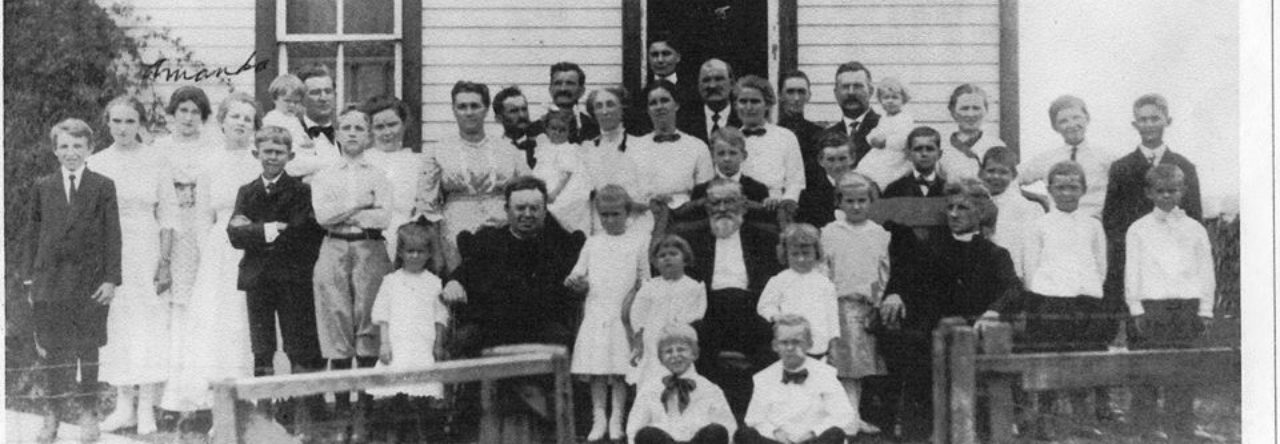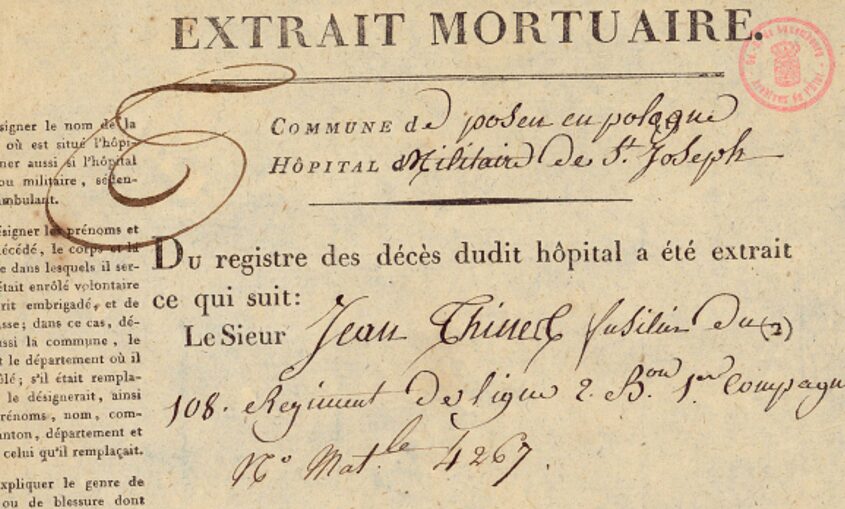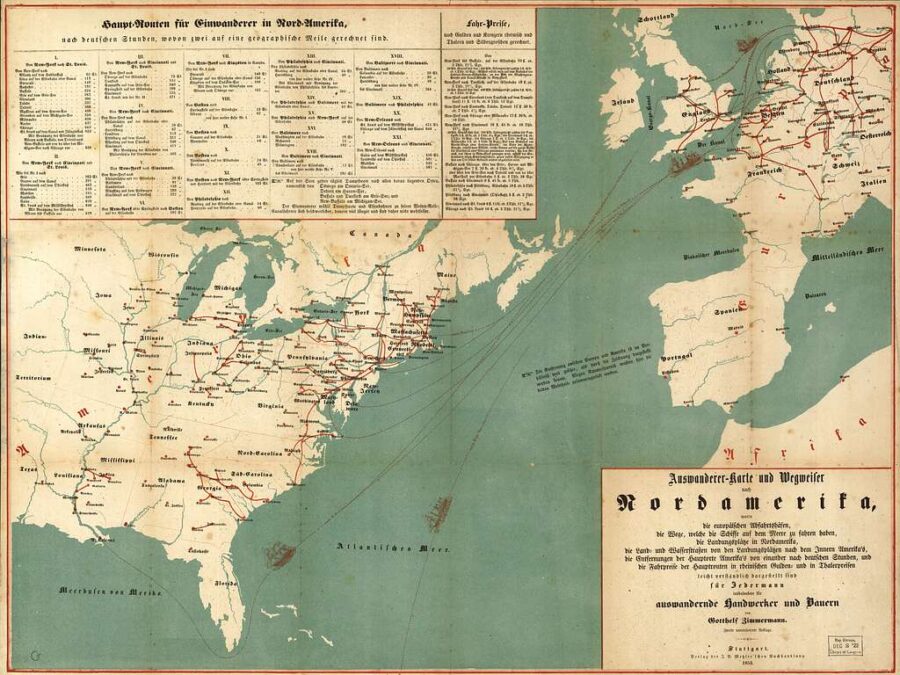In February of 1807 at twenty years old, Jean Thines of Turpange enlisted to fight in Napoleon’s army. A little over a year later he would die of an unspecified illness in a military hospital in Posen, today Poznan, Poland, one of over a million men dead in the early 1800s.
This record is an interesting find in its own right, but French military records during the period give us even more insight into this ancestor’s history. Coupled with what we know about the Napoleonic Wars, we can get a picture of who Jean Thines was, and what his life was like.










